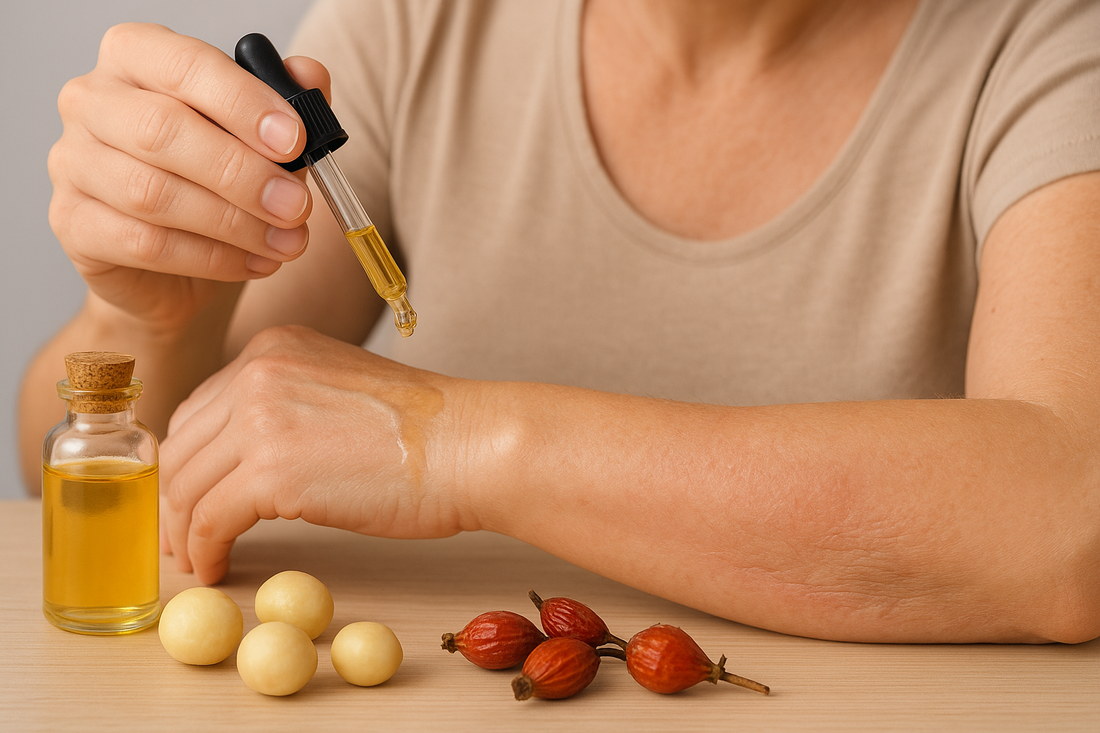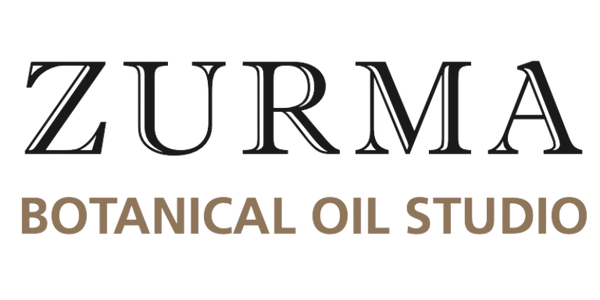
Nut and Seed Oils to Support Skin During Chemotherapy and Radiation Treatment
Share
Cancer treatments such as chemotherapy and radiation can have significant effects on the skin—causing dryness, inflammation, peeling, and sensitivity. As the skin barrier becomes compromised, gentle support through plant-based oils can provide much-needed comfort, reduce irritation, and help maintain moisture balance.
Nut and seed oils are particularly valuable because they deliver essential fatty acids, antioxidants, and barrier-restoring lipids without introducing synthetic additives or fragrances that may further irritate compromised skin. Their biocompatibility allows them to soothe and replenish without overwhelming delicate tissue.
One of the most widely recommended oils during cancer treatment is almond oil. It is rich in oleic and linoleic acid, vitamin E, and phytosterols—providing emollient support and calming mild inflammation. Almond oil is light, soothing, and well-tolerated, making it suitable for daily use on dry or sensitive areas.
Macadamia oil is another ideal choice. High in palmitoleic acid—a fatty acid found in our skin's natural sebum—it supports healing and offers anti-inflammatory benefits. It’s especially useful for mature or extremely dry skin, such as hands, feet, and elbows that may become rough or cracked during treatment.
For barrier repair, rosehip seed oil offers both linoleic acid and naturally occurring vitamin A derivatives (in gentle, plant-based form). It is often used to support skin regeneration after radiation-induced damage. Though it can be more active, it’s best used diluted or in combination with a milder carrier oil like jojoba.
Hemp seed oil, with its high ratio of omega-6 to omega-3, is ideal for calming inflamed or itchy skin. It’s lightweight and non-comedogenic, offering fast absorption without clogging pores. Studies have noted its potential in reducing irritation and restoring barrier function, especially where eczema-like symptoms emerge during treatment.
Black seed oil (Nigella sativa) has shown promise for its antioxidant and anti-inflammatory effects, though it should be used in low concentrations and not on open wounds. Its thymoquinone content may assist in reducing oxidative stress and promoting tissue recovery in mild cases of radiation dermatitis.
Essential oils should generally be avoided or used with extreme caution during active cancer treatment, especially during radiation therapy, due to heightened skin sensitivity and the risk of irritation. If used at all, only very mild options like German chamomile or calendula CO₂ extract (at <0.25%) should be considered—and always under the guidance of a medical or oncology-trained aromatherapist.
To use nut and seed oils effectively, apply a small amount to clean, slightly damp skin and gently massage until absorbed. Avoid heat, fragrance, or overuse. Opt for cold-pressed, unrefined oils packaged in amber glass and stored away from light and heat for best preservation.
Nut and seed oils do not replace medical treatments, but they can offer real relief and a sense of comfort during what is often a challenging journey—reconnecting patients to touch, ritual, and a moment of calm care for the body.
